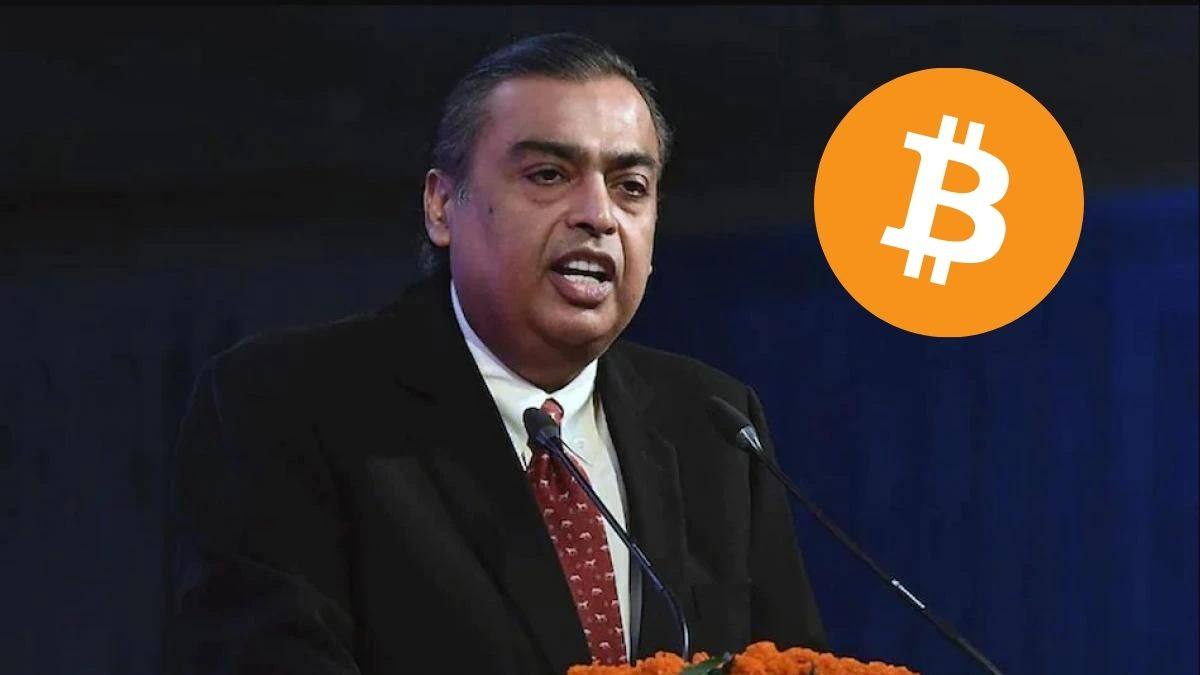Mukesh Ambani supports data privacy and cryptocurrency legislation
Ambani also expressed his support for blockchain technology.

Mukesh Ambani, the billionaire businessman, welcomed the proposed data privacy and cryptocurrency bills on Friday, claiming that India is implementing the most forward-thinking rules and regulations.
Ambani, a proponent of Indians owning and controlling their own data as well as the country writing tight laws around how digital information is stored and shared, stated that governments have the right to construct and defend key digital infrastructure.
He claimed that data is the “new oil,” and that every citizen’s right to privacy must be protected.
At the Infinity Forum, held by the International Financial Services Centres Authority, he remarked, “India is putting in place the most forward-looking laws and regulations” (IFSCA).
He said that the government already has a strong digital identification structure in place, citing Aadhaar, digital bank accounts, and digital payments as examples.
“We are about to introduce a data privacy bill as well as a cryptocurrency bill. He stated, “I believe we are on the right track.”
The remarks come as the administration prepares to introduce a new measure in Parliament that will classify cryptocurrencies as financial assets while protecting small investors. Legislation might set a minimum amount for digital currency investments while prohibiting their usage as legal cash.
The introduction of a law to prohibit all private cryptocurrencies, with “some exclusions to promote the underlying technology of cryptocurrency and its uses,” is on the legislative agenda for the current winter session of Parliament, which began on November 29.
While the government is considering taxing cryptocurrency gains, the Reserve Bank of India wants to outright ban digital currencies because they threaten the country’s macroeconomic and financial stability.
“Data and digital infrastructure are critical for India and every other country on the planet.” Every government has the right to develop and defend this important digital infrastructure,” he said, adding that a worldwide standard is needed to ensure that cross-border transactions, collaborations, and partnerships are not hampered.
He stated that every citizen’s right to privacy must be protected and that the appropriate policies and regulatory framework must be in place to balance this with the country’s obligation to protect data and digital infrastructure.
Reliance Industries Ltd chairman and managing director Mukesh Ambani said he was a huge believer in blockchain technology.
“I believe in blockchain technology, which is distinct from cryptocurrencies,” he explained, adding that “blockchain is critical for a trust-based, egalitarian society.” While a bill to regulate cryptocurrency is being drafted, RBI Governor Shaktikanta Das is one of many who believes that the blockchain technology that underpins cryptocurrencies could flourish without the currency.
“We can provide unprecedented security, trust, automation, and efficiency to nearly any form of the transaction using blockchain,” Ambani added. “It can be utilized to upgrade our supply chains, which are our economies’ lifeblood.” India is well on its path to becoming a major Digital Society, having established the necessary digital infrastructure and regulatory framework.
“Data is the ‘new oil,’ as they say. The new oil, on the other hand, is fundamentally different from traditional oil. Traditional oil was only extracted in a few regions, therefore it only provided income to a few countries. The new oil, on the other hand, Data, may be produced and used everywhere and by anybody. It has the capacity to create value in a fair and equitable manner across sectors, regions, and economic classes,” he stated.
His remarks come amid a debate about how India should strike a balance between user protections and support for its digital economy in the world’s fastest-growing major internet market. A lack of regulation has allowed foreign corporations and hundreds of homegrown entrepreneurs to thrive.
Since its inception in 2016, Ambani’s Jio has accelerated internet uptake while also lowering data prices, and his company has now developed an online-to-offline shopping platform to compete with Amazon and Walmart-backed Flipkart, which are both betting big on India’s e-commerce sector.
He said that the country is totally shifting from 2G to 4G. “We’re working on making a more cheap ecosystem of devices to help drive adoption, which will be aided by a speedier rollout of optical fibre, cloud, and data centre infrastructure.”
“The Internet of Things, or machine, device, and vehicle connectivity, will be the next phase.” With the launch of 5G in India next year, we will have one of the most advanced digital infrastructures in the world.” India, according to Ambani, is well on its path to becoming a premier Digital Society, having put in place the necessary digital infrastructure and regulatory framework.
“Finance is at the heart of everything,” he continued, “and I believe we are at the early stages of sporadic digitization, with many new-age technologies coming, the possibility is in adopting a decentralised model of finance.”
There will be centralised government and central bank policies, but there will also be a way to decentralise technical solutions that make finance accessible to everyone, according to Ambani.
Real-time technologies will aid in the settlement of trades in real-time, rather than days or hours. Smart contracts are on their way to becoming a reality.
“The convergence of real-time technologies, distributed ledger, blockchain, smart tokens, and other smart tokens with physical infrastructure leveraging IoT will transform the decentralised financial industry in ways we never anticipated,” he continued.


